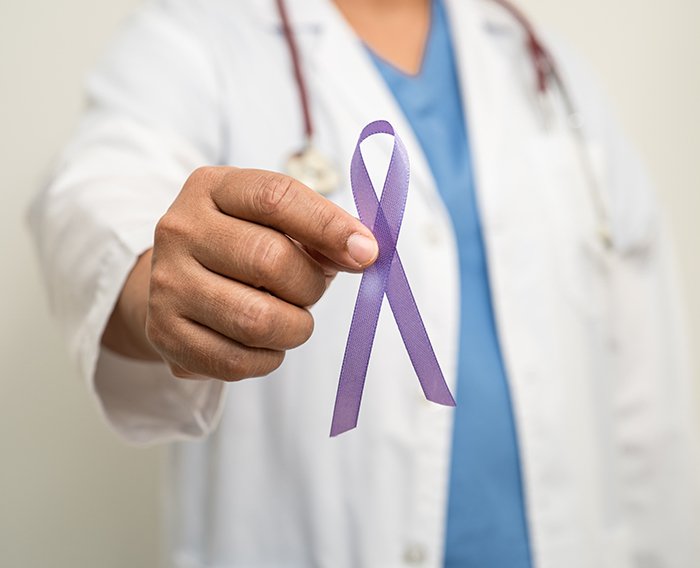
Preventive Oncology
Do you remember the proverb, “Prevention is better than cure”? Cancer can be prevented, it’s true. It works. According to the World Health Organization, altering or averting a few risk factors that cause the lethal disease could prevent 30 to 50 percent of cancer-related deaths.
Meaning of Preventive Oncology
It is an interdisciplinary area of medical science that tries to stop cancer from developing or spreading by taking effective precautions, including changing one’s lifestyle and avoiding risk factors. All of this is accomplished using specific techniques. Let’s start by examining the risk factors that contribute to all cancers.
Major risk factors that cause cancer:
The typical factors that have been linked to an increased risk of developing cancer include:
- Smoking and using tobacco
- Alcohol
- An inactive, sedentary lifestyle
- A diet high in fat and red meat but lacking in produce
- Obesity
- Sexual activity without protection is linked to the spread of the Human Papillomavirus (HPV), which is responsible for cancer in both men and women.
- Radiation exposure from the sun, X-rays, CT scans, nuclear medicine scans, etc
Environmental elements include second-hand tobacco smoke, drinking water polluted with chemicals, and air pollution from automobiles and some fuels You can greatly reduce your risk of developing some malignancies by avoiding all these risk factors or consulting the best oncologist in Ranchi.
Stages of Prevention:
Cancer is a family of connected diseases rather than a single illness. It explains why various types of cancer and several risk factors can raise or lower your likelihood of contracting the terrifying illness. Primary, Secondary, and Tertiary Prevention are the optimum stages to follow in cancer prevention.
- Primary Prevention: This step is started long before the disease manifests itself by avoiding or eradicating all risk factors for cancer, including smoking, as well as alterations to one’s lifestyle, nutrition, and surroundings
- Cancer vaccination: Vaccines are drugs created scientifically to help treat cancer diseases. For diverse illnesses, there are numerous kinds of cancer vaccines. The same goes for immunizations that can shield you from developing cancer. Currently, the Human Papilloma Virus (HPV) and Hepatitis B vaccinations are the only two that offer protection against specific malignancies. Cancer-causing infections can be caused by specific viruses and bacteria
If the Human Papilloma Virus (HPV) stays in your body for a long, it can lead to cervical, vaginal, anal, and vulvar cancer. Hepatitis B virus-induced liver cancer is a possibility. If a healthy person receives immunizations without showing any signs of malignancy, these dangerous viral infections can be avoided.
Genetic screening: If you have a family history of a certain form of cancer, genetic testing can help determine your risk of developing the disease. The tests scan your genes, chromosomes, or proteins for alterations or mutations. Genetic tests can determine if you are at a higher risk for the disease, even though they cannot predict whether you will develop cancer. It is also helpful to remember that not everyone with a gene mutation will get cancer. Genetic testing is typically advised because it can:
- Determine whether you carry the genes that could make your children and other family members more likely to get cancer
- Estimate your chance of contracting a specific illness, such as cancer
- Gather crucial data to inform your cancer treatment strategy
Secondary Prevention
Identifying precancerous diseases at this stage is vital before any clinical symptoms or signals appear. If you have a family history of a certain type of cancer, this is beneficial
Chemoprevention: This is the best approach to cancer prevention in which specific medications are given to treat a precancerous state or perhaps prevent cancer from occurring. These might also be herbal remedies or be used in conjunction with prescription medications. Chemoprevention is used when:
- You have a high risk of getting cancer, especially if someone in your family has already had it or had it in the past
- You previously had the disease. In this situation, getting chemoprevention can both lessen your chance of cancer recurrence and stop you from getting new cancer
- Risk-reducing surgery is surgically removing an organ that could one day lead to cancer to avoid it. For instance, a mastectomy or breast removal procedure to stop the development of breast cancer
- Tertiary Prevention: This occurs after cancer has developed and involves reducing complications and preventing the disease from returning
Immunotherapy
As the name implies, this is a cancer therapy that supports your body’s immunity or natural defenses in the battle against cancer. Your immune system will function better, and any cancer cells already present in your body will be thoroughly eliminated by using either the natural compounds found in your body or produced medications.
Varied immunotherapies have various effects on different people. While certain immunotherapy therapies encourage your immune system to delay or even stop the growth of cancer cells, other forms can arm your immunity to kill cancer cells or even prevent them from spreading to other organs.
Your cancer specialist will determine if immunotherapy should be used alone or in conjunction with other cancer therapies like chemotherapy or radiation therapy. With so many revolutionary advancements in cancer prevention, it is in your best interest to follow your oncologist’s guidance when choosing the most effective preventive measures.
One of the deadliest diseases, cancer, is surrounded by many misconceptions and skepticism. People who come to grips with the term “cancer” may experience dread and hopelessness. The greatest cancer expert in Ranchi and other oncologists agree that people’s fear of cancer significantly impacts their quality of life since they are unaware of the effective early-detection treatments and, most importantly, the preventive measures available to fight cancer.
Looking for a cancer specialist in Ranchi, Jharkhand contacts Dr. Satish Sharma. Call to book an appointment.
